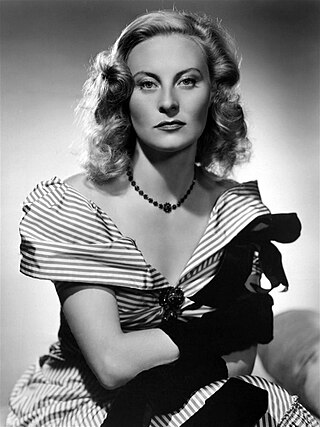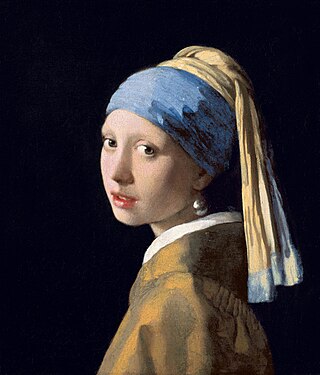Notes
- ↑ Hanks, Patrick; Hardcastle, Kate; Hodges, Flavia (2006). Oxford Dictionary of First Names. Oxford University Press. pp. 92, 316. ISBN 0-19-861060-2.
| Gender | Female |
|---|---|
| Language(s) | Old German |
| Origin | |
| Meaning | wholeness |
| Other names | |
| Related names | Armand, Armina, Emma, Erma, Ermengarde, Ermentrude, Ermina, Ermine, Herman, Hermina, Hermine, Irma, Irmgard, Irmina |
Erminie is a feminine given name related to the Old German word element ermen, meaning wholeness. A variant, Ermine, is considered a feminine version of Herman that was influenced by associations with the fur of the ermine, which was traditionally worn by members of the peerage. [1] Notable people with the name include:
Laurence is an English masculine and a French feminine given name. The English masculine name is a variant of Lawrence and it originates from a French form of the Latin Laurentius, a name meaning "man from Laurentum".
Hrdlička is a Czech surname. Notable people with the surname include:
Voegelin or Vögelin is a surname. Notable people with the surname include:

Michelle is a given name, originally a variant of Michèle, the French feminine form of Michel, derived from the Hebrew name Michael meaning "Who is like God?". The usual Latin feminine form of the name was Michaela, with Michael the vernacular form for both men and women. The name was given in reference to the archangel Michael, a saint of the Roman Catholic Church. The usual French feminine form of the name was Micheline. The name Michelle was rare until the 20th century. It became a popular name in France and later throughout the Anglosphere after 1930, popularized by French-born film actress Michèle Morgan, who was born Simone Roussel. The name was further popularized by the 1967 hit Beatles song Michelle, Ma Belle. The name peaked in usage for American girls in 1968, when it was among the five most popular names for newborn girls. The name has since declined in popularity but remains in regular use in English-speaking as well as French-speaking countries.
Susan is a feminine given name, the usual English version of Susanna or Susannah. All are versions of the Hebrew name Shoshana, which is derived from the Hebrew shoshan, meaning lotus flower in several languages.
Abram is a male given name of Akkadian origin, meaning exalted father in much later languages. In the Bible, it was originally the name of the first of the three Biblical patriarchs, who later became known as Abraham.
Sorcha is a Gaelic feminine given name. It is common to both the Irish and Scottish Gaelic languages, and is derived from the Old Irish word sorchae, soirche meaning "brightness".

Marlene is a German feminine given name. It is derived from Maria combined with Magdalene. It was popularized by actress and singer Marlene Dietrich. It also came into wider use in the 1940s due to the popular song Lili Marlene. The traditional German pronunciation is mar-LAY-nuh. The North American English pronunciation of the name is mar-LEEN. Phonetic variants include Marlena and Marleen.

Erminie is a comic opera in two acts composed by Edward Jakobowski with a libretto by Claxson Bellamy and Harry Paulton, based loosely on Charles Selby's 1834 English translation of the French melodrama, Robert Macaire. The story concerns an arranged engagement between Ermine and Ernest, but both are in love with someone else.

Pearl is a primarily feminine given name derived from the English word pearl, a hard, roundish object produced within the soft tissue of a living, shelled mollusk. Pearls are commonly used in jewelry-making. The pearl is the birthstone for the month of June. Pearls have been associated with innocence and modesty. Because it comes from the sea, it also has associations with the moon and with water. Pearls are also traditionally considered appropriate jewelry for debutantes and brides.
Kryukov and Kryukova is a common Russian surname derived from the word "крюк" (kryuk). While the literal meaning of the word is "hook", the surname stems from the figurative meaning of "finicky person", a "quibbler", but also a "stoop-shouldered person".
Ermine may refer to three species of mustelid in the genus Mustela, or their fur:
Gayle is a variant spelling of Gail, a short form of the name Abigail.
Erminie Wheeler-Voegelin was an award-winning anthropologist, folklorist, and ethnohistorian.
Alondra is a feminine given name. It is the Spanish word for "lark". It was the most popular name for girls born in Puerto Rico in 2009.
Gráinne is a feminine given name in the Irish language. The name is of an uncertain origin, although it is possible that it may be connected with the word ghrian, meaning "the Sun". In Irish legend, Deorghrianne is the daughter of Fiachna, Son of Betach. The name is also borne by a famed character in Irish mythology—Gráinne, who was the daughter of Cormac mac Airt, a legendary High King of Ireland.
Sayuki is a feminine Japanese given name. Notable people with the name include:
Chaloupka is a Czech surname meaning "little cottage". People with the surname include:
Jorja is a feminine given name related to Georgia which may refer to:
Hallie is an English feminine given name that originated as a hypocorism for the name Harriet. Young children often have difficulty in pronouncing the letter r, which resulted in nicknames that substitute the letter l for r. Other examples include Dolly for Dorothy, Lolly for Laura, and Molly or Polly for Mary, or Sally for Sarah. The name is also occasionally regarded as a variant of Hayley.